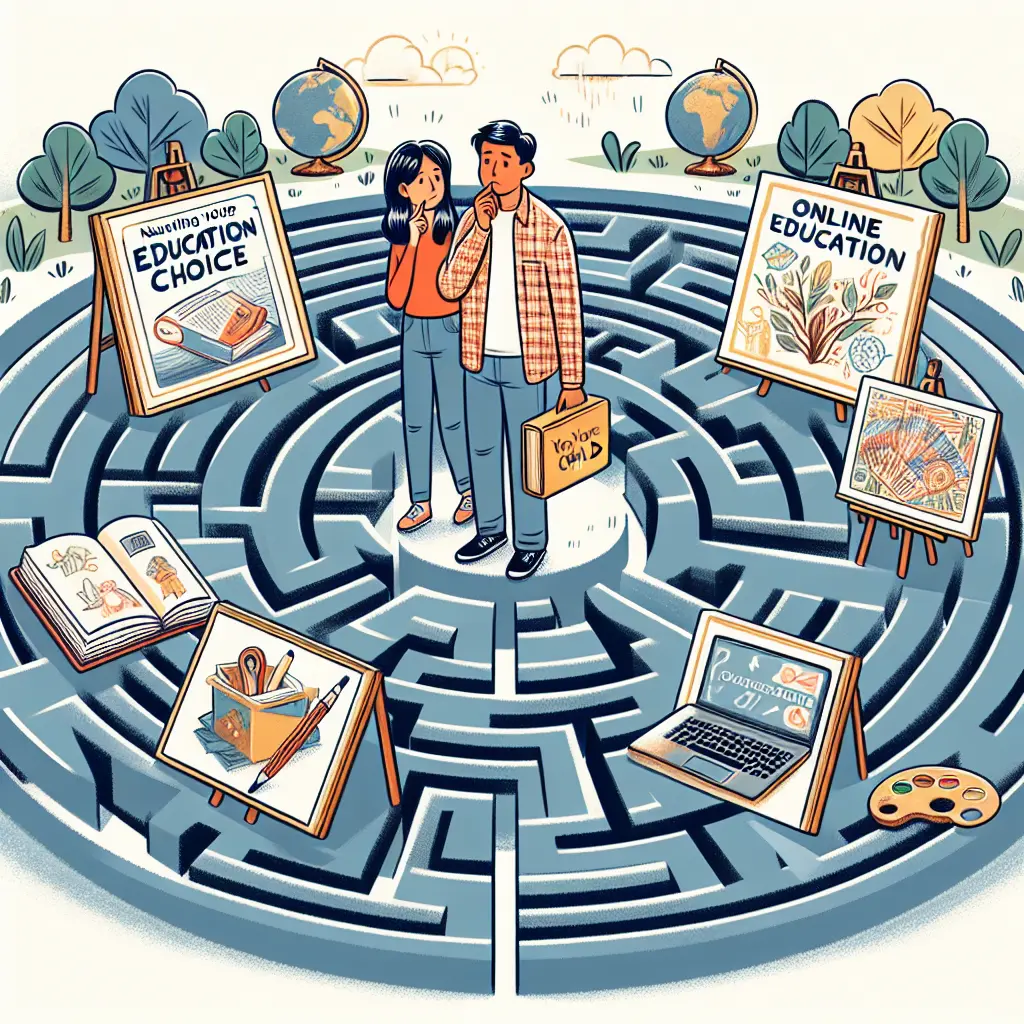
As parents, navigating your child's educational journey can feel like steering through an intricate maze with countless pathways and decisions at every turn. From choosing a school to deciding between homeschooling vs traditional schooling, the landscape of child education choices is vast and varied. This blog aims to guide you through these educational pathways, integrating insights from recent events and expert opinions to help you make informed decisions that best fit your family's needs.
Understanding Education Options for Children
The first step in navigating your child’s education is understanding the array of options available. Early childhood education choices lay the foundation. Options range from Montessori schools, known for their child-led approach and focus on hands-on learning, to more structured environments like the International Baccalaureate (IB) programs, which offer a globally recognized curriculum.
Choosing a School: Private vs Public Schools
Choosing between private and public schools is a significant decision many parents face. Private schools often offer smaller class sizes and specialized programs but come with higher tuition costs. Public schools are generally more diverse and cost-effective but can vary widely in quality depending on geographic location. Recent discussions, such as those highlighted by Melinda French Gates, emphasize the importance of community and shared experiences in educational outcomes, underscoring that the best schools for kids aren't always the most expensive or exclusive ones.
Special Education Options
For families with children who have special needs, finding the right educational setting is crucial. Special education options are designed to provide tailored educational experiences that accommodate individual learning requirements. A powerful narrative shared by a mom of a child with autism reveals the challenges and triumphs within specialized educational settings and the impact of parenting styles on children’s development.
Educational Pathways: Homeschooling vs Traditional Schooling
The debate between homeschooling vs traditional schooling has gained traction, especially with the rise of online learning for children. Homeschooling allows for a customizable education tailored to a child’s specific needs and interests but requires a significant time investment from parents. Traditional schooling offers more social interaction and access to diverse resources. Each has its merits, and the choice depends largely on what works best for the child and family dynamics.
STEM Education for Kids
STEM education has become a critical area of focus, preparing children for future careers in science, technology, engineering, and mathematics. Initiatives like Google's AI Olympics highlight the growing importance of tech literacy from an early age, though they also remind us of the need for sensitivity and inclusivity in how educational content is presented and discussed.
Online Learning for Children
The pandemic has accelerated the adoption of online learning. Platforms offer various courses that cater to different age groups and learning styles. However, this shift has also sparked debates about screen time and the effectiveness of digital learning environments compared to in-person interactions.
The Role of Parental Involvement
Parental involvement is pivotal in navigating a child’s education. Stories from parents like those who have experienced burnout or altered their parenting styles show that while there is no one-size-fits-all approach to parenting, engagement is key. Whether it’s deciding to step back and ask for help or switching to authoritative parenting, these decisions profoundly impact a child's educational experience.
Conclusion
In conclusion, navigating your child's education choices involves a thoughtful consideration of various factors including personal family values, your child’s needs, and the resources available. Whether you opt for homeschooling or traditional schooling, private or public education, early childhood programs, or specialized pathways like Montessori or IB programs, each choice shapes your child’s development and future opportunities.
As we've explored here, informed decisions are crucial. Engage with teachers, visit schools, talk to other parents, and most importantly, involve your child in these discussions to ensure their education aligns with their aspirations and abilities. Remember, the path you choose doesn’t need to be permanent; it's about adapting to provide the best possible support for your child’s growth and happiness.
For more insights and updates on child education choices, keep informed through trusted educational resources and community forums.
With warmth and understanding,
Miranda Fielding